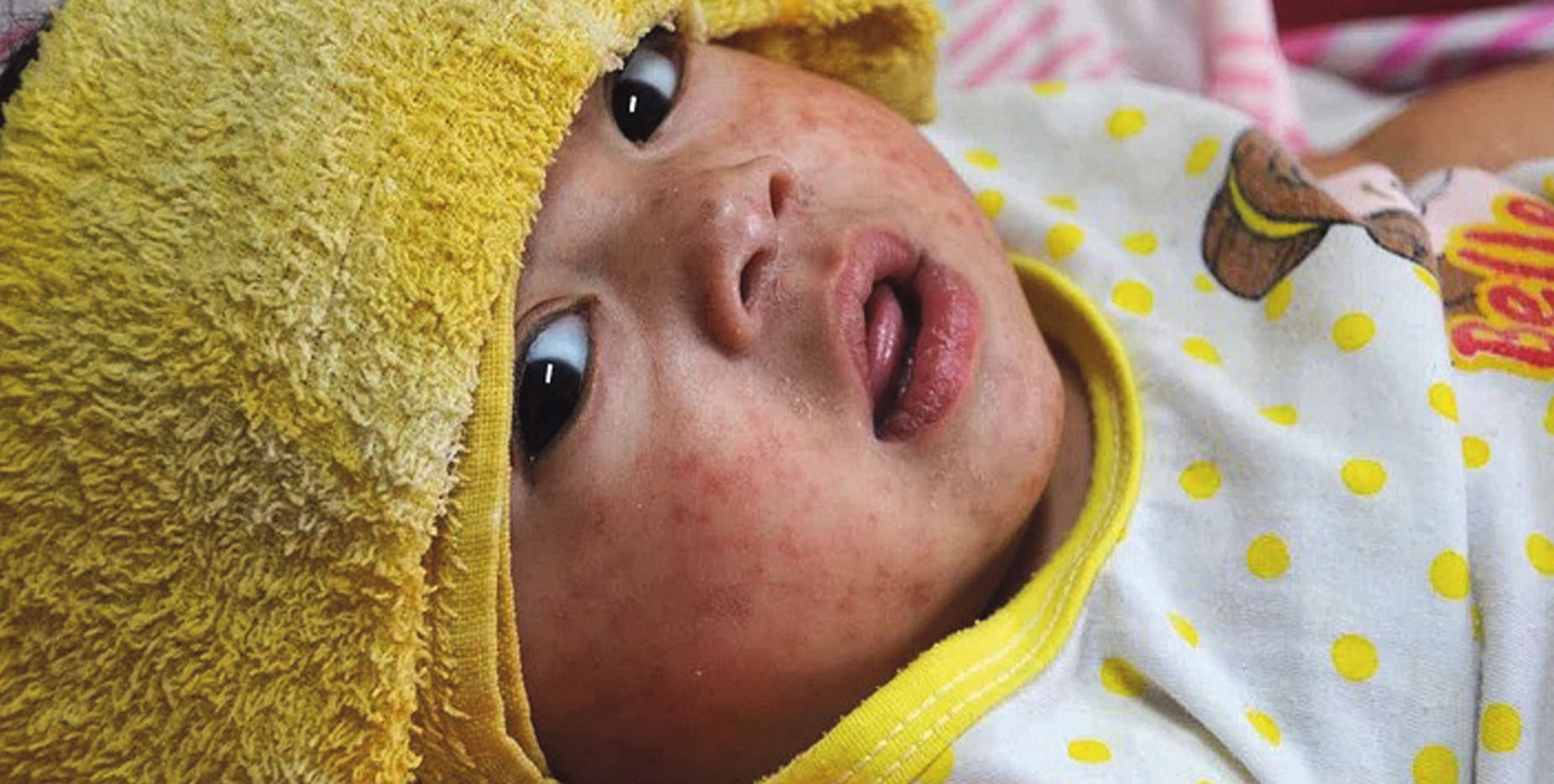
There are concerns over the recent rise in measles cases in England in the past few months. Several outbreaks have been reported, including cases in the Northwest of England, Yorkshire, the Humber, the Midlands, and London, with 166 reported cases in the last month.
Measles is a highly contagious disease, and cases are rising due to a drop in the uptake of the MMR vaccine (measles, mumps, and rubella), with many children and adults not protected from measles.
This means that measles cases can spread among the unvaccinated. Health officials are urging parents to check their children’s vaccine records and ensure they are up-to-date and that their children have received the two doses of the MMR vaccine.
Measles is a highly contagious viral disease that spreads quickly to unvaccinated individuals. Symptoms typically include a blotchy red or brown rash, which usually appears after a few days, starting on the face and behind the ears before spreading to the rest of the body. The rash may be harder to see on brown and black skin.
A red rash
High temperature
Sore, red, and watery eyes
Coughing and sneezing
In most cases, measles will last about 1-2 weeks and symptoms will clear up. However, measles can lead to severe complications such as pneumonia, meningitis, blindness, and seizures. Babies and young children, pregnant women, and those with a weakened immune system are at increased risk. In some cases, complications can lead to death, although this is rare. Between 2000 and 2022, 23 children and adults died in England and Wales as a result of measles or related infections.
The rise in measles cases is related to lower MMR vaccination rates. The WHO recommends that around 95% of the population needs to be vaccinated with two doses of the MMR vaccine to achieve enough immunity within the community that the chances of measles spreading are significantly reduced—so-called herd immunity.
This also protects those who cannot be vaccinated due to medical reasons. However, in 2022–23, only around 85% of children had received two MMR doses by their fifth birthday, the lowest level since 2010–11, well below the recommended 95%.
In some regions, this figure is even lower, with NHS figures showing around 75% of 5-year-olds are fully vaccinated in some cities such as Liverpool, Manchester, Birmingham, and Nottingham, and even lower rates were recorded in some areas, such as Hackney in east London, where nearly half of children under five are not fully vaccinated. It is estimated that more than 3.4 million children in England aged under 16 are unprotected.
The COVID-19 pandemic resulted in missed MMR vaccination appointments, and some parents may not have caught up with their child’s vaccination schedule. In addition, as measles is still relatively rare, parents may not feel any urgency to get vaccinated, perceiving the risks to be low.
However, as more children are unvaccinated, the risks of catching measles increase. There are also potentially many young adults who are not vaccinated—a legacy of concerns about the MMR vaccine and links to autism from over 20 years ago. As a result, measles outbreaks are more likely.
Lower vaccination rates have led to an increase in cases in recent years. According to the UK Health Security Agency (UKHSA), there were 1,603 suspected cases of measles in England and Wales in 2023, a significant rise from 735 cases in 2022 and 360 in 2021. In the 4 weeks since January 15, there have been 166 laboratory-confirmed measles cases (UKHSA), with around half of these in the Midlands area. MMR vaccination rates have also fallen across Europe.
The WHO reported more than 30,000 cases of measles in Europe in 2023, a huge jump from 941 cases during the whole of 2022.
Dr Vanessa Saliba, from the UK Health Security Agency, said: “As expected, due to worryingly low MMR vaccine uptake in some areas across the country, we are now starting to see clusters of cases in other regions… There are still hundreds of thousands of children who remain unprotected and therefore remain at risk of serious complications or lifelong disability.”
Parents are strongly urged to take up the offer of the MMR vaccine and contact their GP surgery to check if their child has received both doses of the vaccine. If you are an adult, you can still receive the MMR vaccine and should talk to your GP.
Photo: A child infected with measles. (Credit: Centers for Disease Control & Prevention)
Rachel Kayani